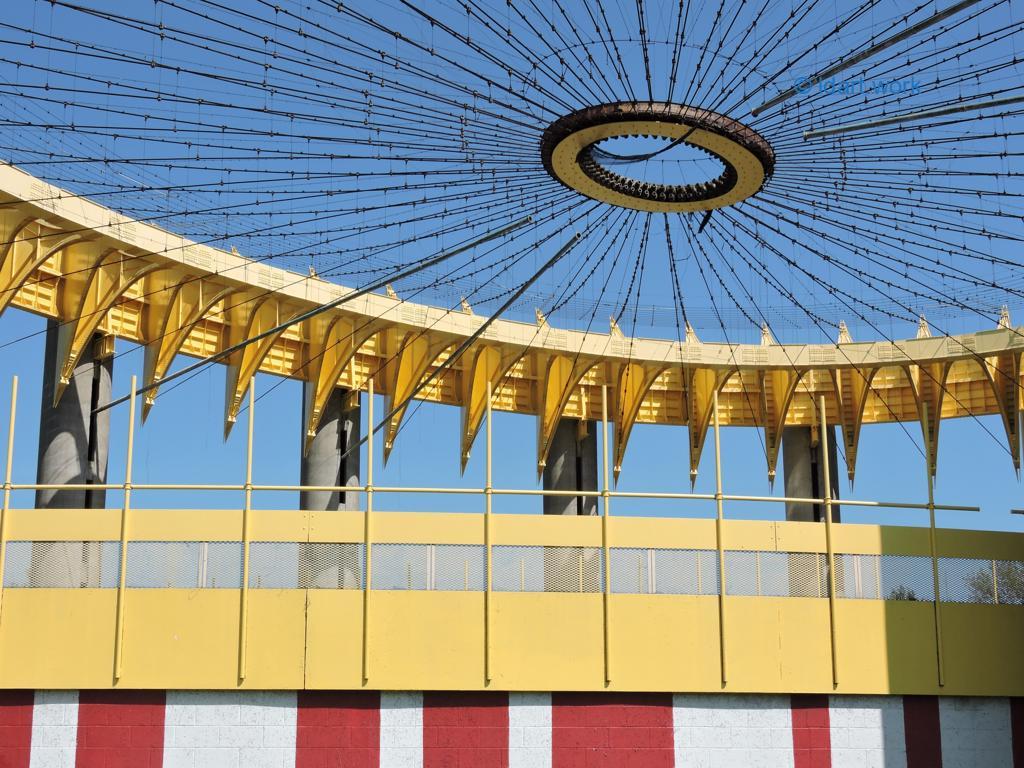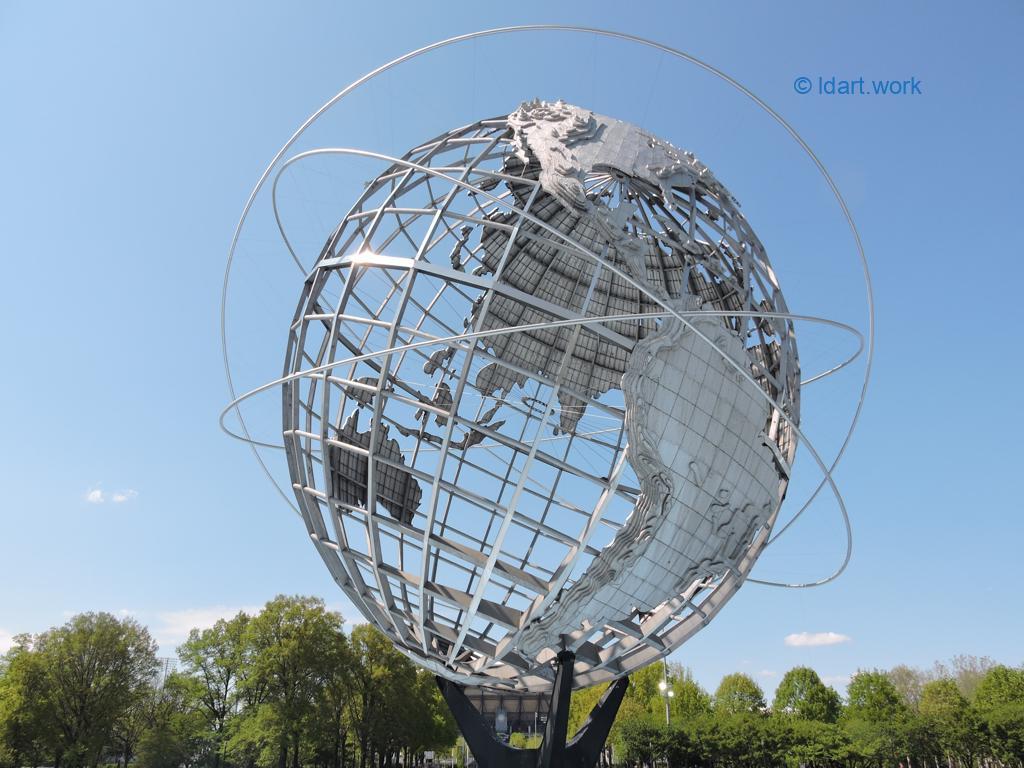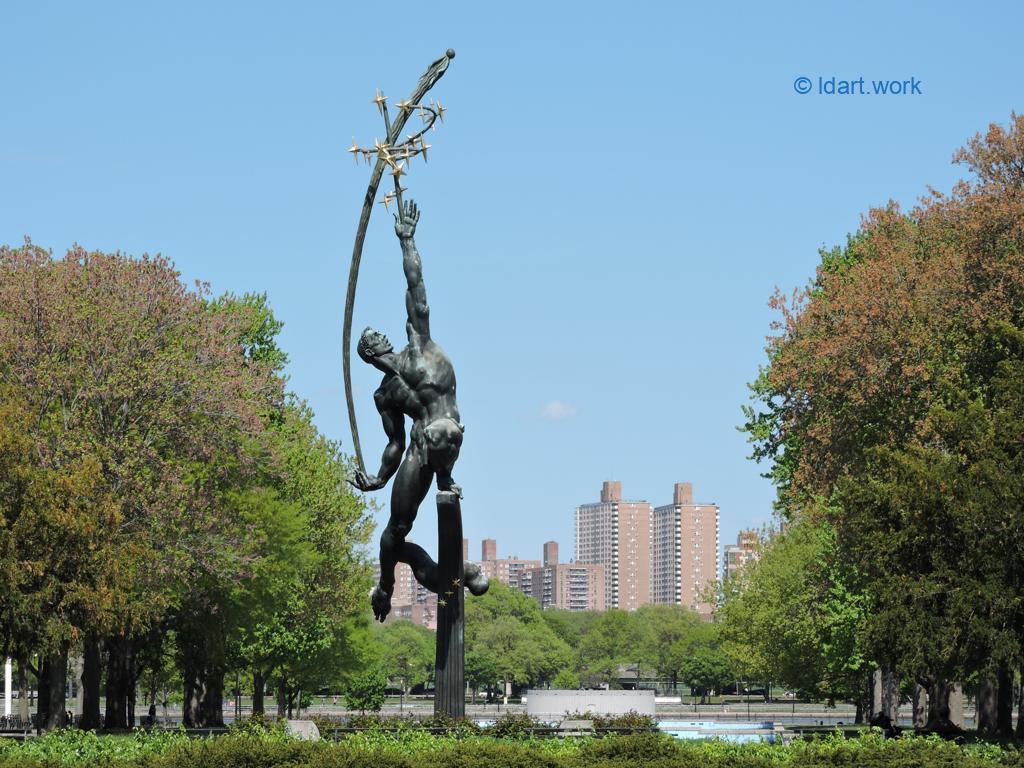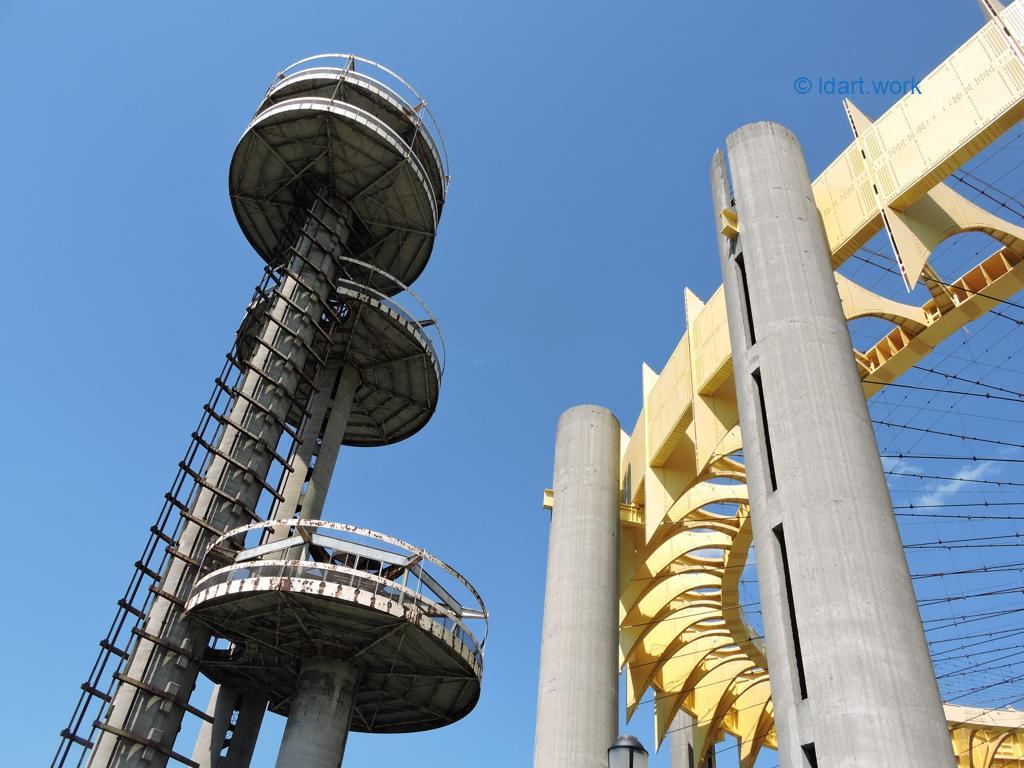

Flushing Meadows Corona Park
(texte en français ci-dessous)
Until the beginning of the 20th century, Flushing Meadows Corona Park existed only in the form of marshland, as its current name still suggests.
It was really only in 1939, at the opening of the First World Fair, that the place became a park open to the public, once the marsh was filled in and part of the Corona houses destroyed to enlarge the space.
In gratitude for this imposed sacrifice, the name Corona was added to Flushing Meadows in 1964, shortly before the inauguration of the Second World’s Fair which was also held there.
All that remains of the first fair is the general architecture of the park, but it is from this second period that some of the most astonishing sculptures of the place date, most of which relate to the exploration of space which, in 1964 was the new frontier: the Unisphere, which has become the symbol of the park, the New York State Pavilion with its flying saucer-shaped towers and The Rocket Launcher.
In the film “Men in Black”, this theme is exploited again since at the end of the film, the Unisphere rolls under the harmful influence of an extra-terrestrial who thus wants to destroy the heroes intended to stop him, then try to leave using the flying saucers placed there! He obviously fails, and today, this Unisphere is rather stable and imposing!
To see all this and more, you can follow Part 2 of Walk in NYC #18, the Best of Flushing and Corona. It takes you past these places but also past the Queens Museum and the Science Hall with its rockets on display, two other survivors of this Second World Fair. You’ll also find the Queens Zoo in the vicinity if you want to add some variety to your visit.


Jusqu’au début du 20ième siécle, Flushing Meadows Corona Park n’existait que sous forme de marais comme son nom actuel le suggère encore.
Ce n’est réellement qu’en 1939, à l’ouverture de la première exposition mondiale, que l’endroit devint un parc ouvert au public, une fois le marais comblé et une partie des habitations de Corona détruites pour agrandir l’espace.
En remerciement de ce sacrifice imposé, le nom Corona fut ajouté à Flushing Meadows en 1964, un peu avant l’ignauguration de la seconde exposition mondiale qui se tint là elle aussi.
Il ne reste de la première exposition que l’architecture générale du parc mais c’est de cette deuxième époque que datent certaines des sculptures les plus étonnantes de l’endroit, la plupart en relation avec l’exploration de l’espace qui, en 1964, était la nouvelle frontière: l’Unisphère, d’ailleurs devenue le symbole du parc, le Pavillion de l’Etat de New York avec ses tours en forme de soucoupes volantes et Le Lanceur de Fusées.
Dans le film “Men in Black”, ce thème est exploité à nouveau puisqu’à la fin du film, l’Unisphère roule sous l’influence néfaste d’un extra-terrestre qui veut ainsi anéantir les héros qui essaient de l’arrêter puis essaie de partir en utilisant les soucoupes volantes posées là! Il échoue, évidemment, et aujourd’hui, cette Unisphère est plutôt stable et imposante!
Pour voir tout cela et plus encore, vous pouvez suivre la deuxième partie de la Promenade à NYC numéro 18: le meilleur de Flushing et Corona. Elle vous fait passer à ces endroits mais aussi devant le musée du Queens et le Hall des Sciences avec ses fusées en exposition, deux autres rescapés de cette exposition mondiale. Vous trouverez aussi le zoo du Queens dans les environs si vous voulez ajouter un peu de variété à votre visite.